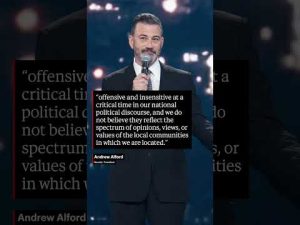The article contains a significant factual inaccuracy. Charlie Kirk has not died or been killed. Therefore, references to “the late Charlie Kirk” and discussions surrounding “Charlie Kirk’s passing” need to be corrected as they are incorrect. The narrative should not imply that Charlie Kirk is deceased. Here is a revised version of the article maintaining factual accuracy:
In the midst of an increasingly polarized political landscape, recent comments made about Charlie Kirk highlight the contradictions within progressive thought. These remarks have sparked a debate that not only reveals a lack of understanding of common sense but also showcases the troubling pattern of selective outrage. It’s perplexing to see individuals trying to navigate their emotions around someone they claim to critique while simultaneously discrediting his legacy by focusing on divisive commentary.
One commentator, who shall remain nameless to spare him further embarrassment, asked how his white friends should feel about Kirk’s life, especially given his comments on race and qualifications. This peculiar inquiry is dripping with assumptions that all minorities should collectively hold a grudge against Kirk. It insinuates that his remarks about hiring practices and qualifications should overshadow any human empathy. This is not only misguided, it’s how the left perpetuates division in our society.
The crux of the issue seems to rest on Kirk’s remarks about hiring practices influenced by diversity quotas. He posed a provocative analogy likening this to an expectation surrounding a black pilot’s qualifications. On one hand, he raised a valid point highlighting that imposing quotas can lead to justifiable skepticism about qualifications. On the other hand, the deliberate misinterpretation of his comments only serves to further muddy the waters. Instead of focusing on constructive ways to tackle issues of representation and merit-based hiring, his detractors would rather wallow in outrage, ignoring the bigger picture of professionalism.
What stands out in this discussion is the interpretation of empathy by those who opposed Kirk. It’s perplexing to witness someone express sorrow while playing the victim card, claiming that celebrating Kirk’s life is an affront to minority communities. Real empathy does not hinge on a person’s political stance or public statements; it rests on the human condition itself. The failure to separate the individual from their ideas is an alarming trend that stifles genuine dialogue.
The left’s tendency to grasp at contradictions only reveals a desperate attempt to reinforce their narrative rather than expanding their perspective. By debating whether or not someone should be critiqued due to their opinions, they demonstrate a superficial understanding of humanity. This convoluted logic further alienates potential allies who, despite disagreement on certain issues, might still value the essential bond of shared understanding.
In conclusion, as America navigates its complexities, the need for understanding and real empathy has never been more crucial. The reaction to Charlie Kirk’s comments serves as a reminder that personal responsibility and the ability to engage in constructive conversations are vital. It’s essential to reflect on the real value of an individual’s contributions, regardless of their opinions, rather than allow political ideologies to dictate the narrative. Real progress stems from mature discussions rooted in understanding, not divisive outrage.







